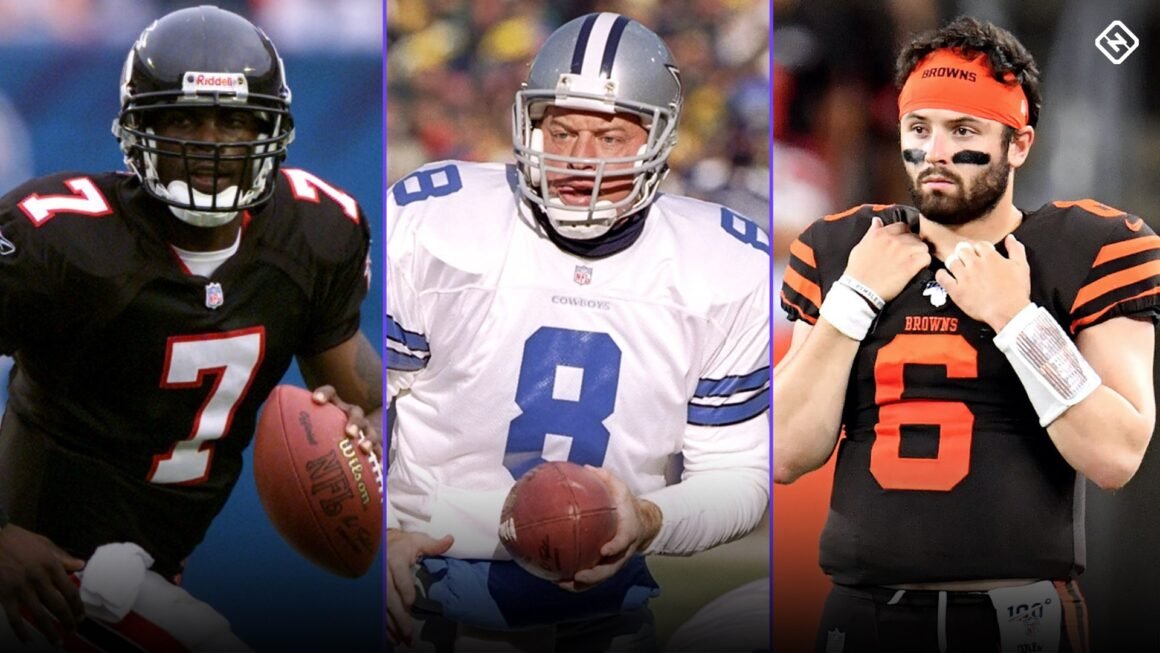The selection of a quarterback as the No. 1 overall pick in the NFL draft is a momentous occasion for any franchise. This decision has often been made with the hope that the selected player will become the cornerstone of the team for years to come. With the recent selection of Bryce Young by the Carolina Panthers in 2023, it’s an opportune time to dive deep into the history, trends, and implications of taking a quarterback first overall in the NFL draft.
The Legacy of No. 1 Overall Picks: From Bradshaw to Young
The tradition of selecting a quarterback at the top spot is rich in history and filled with mixed outcomes. It begins with the Pittsburgh Steelers drafting Terry Bradshaw in 1970, who despite a rough start, became a Hall of Famer and four-time Super Bowl champion.
Rookie Campaigns: A Mixed Bag of Results
Rookie seasons for quarterbacks taken first overall can vary widely. Let’s explore some significant examples:
Alex Smith (2005) – A Struggling Start
With a completion percentage of 50.9% and throwing 11 interceptions in 9 games, Smith had a rocky start. However, his career turned around under the right guidance, and he eventually became a three-time Pro Bowler.

Jared Goff (2016) – Initial Chaos, Later Success
Despite a challenging rookie season, Goff’s career took a positive turn after a coaching change, leading him to three Pro Bowls and a Super Bowl appearance.

Eli Manning (2004) – A Legend in the Making
Manning’s rookie year was not indicative of his future success, as he developed into a two-time Super Bowl champion and Giants’ all-time leader in several statistical categories.

The Exception: Cam Newton (2011)
Cam Newton’s rookie season was exceptional as he earned a Pro Bowl selection in 2011. The success of the Panthers’ first No. 1 QB provides an interesting comparison for their latest selection, Bryce Young.

Projecting Bryce Young’s Impact: What History Teaches Us
The Panthers’ decision to draft Young as their No. 1 pick comes with enormous expectations. However, history shows that rookie seasons are not always indicative of a quarterback’s long-term success or failure.

Physical Comparisons: Newton vs. Young
While Young’s physical stature contrasts sharply with Newton’s, it is essential to note that size doesn’t always define success.

Analyzing Past Success: Hall of Famers & Pro Bowlers
Out of 24 quarterbacks selected first overall who started at least two games in their rookie year, only four became Hall of Famers, but 18 earned at least one Pro Bowl selection. This shows that a strong rookie campaign is not a prerequisite for a successful career.
The Wider Context: System Fit & Support
Alex Smith’s case illustrates how a quarterback’s success may depend on fitting into the right system and having adequate support from coaching staff and teammates.
Conclusion: A Journey Full of Potential
Drafting a quarterback No. 1 overall is an investment filled with potential, excitement, and uncertainty. The paths of previous players like Bradshaw, Manning, Goff, and Newton demonstrate that a player’s rookie campaign may not be a clear indicator of their long-term prospects.
As we look forward to watching Bryce Young’s journey unfold with the Carolina Panthers, we are reminded that patience, proper coaching, and a supportive environment can be just as crucial as natural talent.
The history of quarterbacks drafted No. 1 overall by their rookie campaigns provides valuable insights not only for analysts, fans, and teams but also for upcoming talents aspiring to join the ranks of the NFL elite. In this ever-evolving sport, adaptability, resilience, and continuous learning are the hallmarks of greatness.

